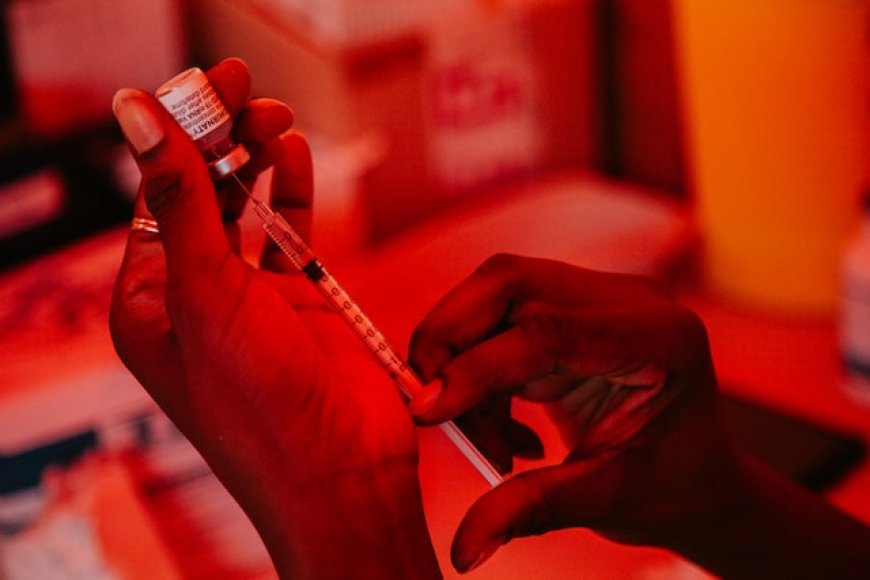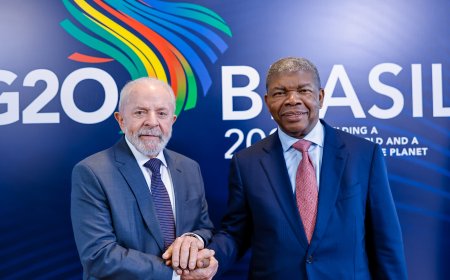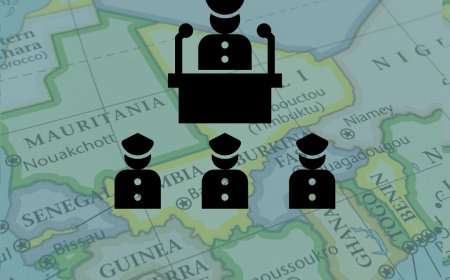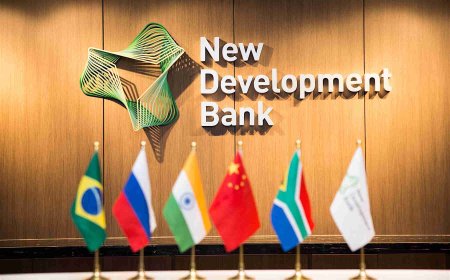This article is part of a series on “What is Germany’s Africa Policy?” The series is edited by Dr. Melanie Müller and Dr. Olumide Abimbola.
Summary
- Cooperation between Europe, particularly Germany, and African countries on health issues needs to be redefined to address existing inequalities.
- The current health cooperation between Germany and African countries has roots in the colonial era and needs to be decolonised.
- In recent years, Germany has focused on health development cooperation, global health financing, and maternal and child health in Africa.
- There is a need to critically evaluate the impact of partnerships on public health institutions, health workforce development, and health equity. Labour mobility, research, and innovation in health cooperation should also be scrutinised.
- New German - African health partnerships require humbleness and respect for perspectives that seek autonomy and historical justice to develop a new African public health order, which includes financial arrangements like adaptation, mitigation and loss & damage funding to address environmental and climate risks to human health.
Introduction
Cooperation between Europe, and more specifically Germany, and African countries on health issues has taken a new turn since the Covid-19 pandemic. While global health cooperation had already become more politically prominent during the last decade, the pandemic has indicated a need to change these relations if they are to be deepened. These relations have been, and still are, neither fair nor reciprocal. Access to medical products, how scientific medical knowledge is generated and shared and, even more fundamentally, who defines the priorities of such an agenda remain unequal. This article unpacks the different health and foreign policy aspects of German global health relations with African counterparts. It analyses how this relation could be furthered from a decolonial perspective. It uses the global health diplomacy (GHD) framework developed by Labonté and Gagnon as a conceptual and analytical lens. In addition, it classifies six policy approaches that can advance health arguments in foreign policy and thereby inform GHD. These approaches are security, development, global public goods, trade, human rights and ethical/moral reasoning.
A colonial legacy
As for most Western European countries, modern health cooperation between Germany and African countries is shaped by relations and approaches that started during colonial times. This colonial legacy has lasting imprints on how health relations are constructed nowadays. For one, the African regions that Germany formally colonised until World War I are still the geographical areas where much technical and scientific health cooperation takes place with contemporary African governments. The science of tropical medicine, represented by institutes such as the Bernhard Nocht Institute for Tropical Medicine and the Robert Koch (RKI), has its origins in a broader colonial project. Given the ongoing colonial legacy in health cooperation, it is not surprising that many, mainly Southern scholars and activists, argue for decolonising global health relations. One of the main arguments is related to removing forms of supremacy, forms evident glaringly ‘in how global health organisations operate, who runs them, where they are located, who holds the purse strings, who sets the agenda, and whose views, histories, and knowledge are taken seriously’. Before addressing the supremacy argument, this article first deconstructs how German-African health cooperation has developed over the years.
Health development cooperation during the Cold War and beyond
In line with the Cold War era logic, health cooperation with African states was organised very differently by the Federal Republic of Germany (FRG) and the German Democratic Republic (GDR). Since the late 1950s, the FRG mainly deployed medical and scientific workers to former colonial states in Africa for capacity building purposes, skills sharing and technical assistance. This technical cooperation has been and is still organised via faith-based institutes such as the Deutsches Institut für ärztliche Mission (Difäm) and the Missionsärztliches Institut Würzburg. In addition, from the 1960s onward, the FRG-funded faith-based development non-governmental organisations (NGO) such as Brot fur die Welt and Misereor that have also organised medical technical assistance projects with partner organisations in Western and Eastern African states such as the Christian health associations. They have also facilitated scholarships for students to study medicine and public health in Germany.
The GDR, on the other hand, focused on cooperation with socialist partner countries, and instead of a ‘humanitarian’ or ‘development’ frame, the work was presented as ‘solidarity’ cooperation. It was partly done by organising international medical-scientific exhibitions organised by the Museum of Hygiene, Dresden. Exhibitions took place in, for example, Algeria, Egypt, Tanzania and Mali. The volume of FRG-funded projects was much more extensive, with about 80 projects in Africa in the 1960s. The GDR, in contrast, mainly provided medical scholarships to students from independent, then socialist, governed states such as Guinea, Mali and Mozambique.
After the fall of the Wall in Berlin in the 1990s, health development cooperation became institutionalised and professionalised. The German Technical Cooperation (GTZ, later GIZ) grew into a development partner with a central role in facilitating health system and policy concepts. Since 2002, one of the ‘flagship’ approaches has been the GIZ BACKUP health initiative that supports countries in submitting, implementing and monitoring health programmes with the Global Fund to Fight HIV, Malaria, and Tuberculosis. It also supported the Global Alliance for Vaccines and Immunisation, a response to the ‘big three‘ epidemics, AIDS, tuberculosis and malaria, that claimed more than six million lives annually around the beginning of this century, to a considerable extent in Sub-Saharan Africa (SSA). In addition to this approach, maternal, neonatal and child health became a priority area of work as part of the Millennium Development Goals (2000-2015). Longstanding collaborations with African NGOs have been established. These include Aidspan, Frontline AIDS and the International Planned Parenthood Federation and take place in countries as diverse as Kenya, Guinea, Malawi and Togo.
In more recent years, the focus has been on advancing global health financing with the aim to expand universal health coverage and social health protection, key components of the health-related Sustainable Development Agenda (2015-2030) that focuses on inclusive economic growth. This focus is being implemented via an international network called the ‘Providing for Health (P4H) initiative. Collaborations supported by GIZ and P4H include those with ministries of health and ministries of national planning in Cameroon, Malawi and Nigeria. Funding has also enabled scientific cooperation and education via the many health scholarships that have been made available by the German Academic Exchange Service (DAAD), the main funding body that supports non-clinical, public health-oriented funding and scientific grants for obtaining a Master of Public Health or PhD degree.
Most governmental education cooperation is, however, clinically oriented. This orientation may reflect that social scientists, and scientists from broader interdisciplinary areas, do not generally participate in global health teaching and research in German medical university departments. Hence, their approaches do not find their way into German-African health cooperation. There is an evident knowledge and practice gap here given the complex, transnational and social determinants that shape health inequities and their outcomes, not only in the infectious disease domain but certainly also for non-communicable diseases that have their roots in the nutritional, urban and environmental landscape where modern societies, both African and European, reside.
Health security and global public goods
The Covid-19 pandemic and before that other public health emergencies of international concern, such as the Ebola viral disease outbreak in West Africa (2014-2016) and the ongoing HIV/AIDS pandemic in the decades before that, have made countries realise that transnational health risks require shared responsibility and coherent approaches. Health security is a priority topic in the recently presented EU Global Health Strategy. With the strategy, the EU aims to deepen its leadership and reassert its responsibility for tackling key global challenges and health inequalities head-on: the unfinished agenda in global health and combating health threats in the age of pandemics. These threats to health security can be chemical, biological, nuclear or an epidemic, including the silent killer: antimicrobial resistance. A major policy action arguing for a response to these threats is the ‘One Health’ approach.1 Similarly, the EU, in its bilateral and regional and multilateral health diplomacy, is referring now to a ‘Team Europe’ approach.2 A few ‘Team Europe’ projects have been foreseen (2022-2027) that should, in theory, support the attainment of an ‘African New Public Health Order.’ The main finance (800 million Euro for 2022-2027), however, is committed to the European and Developing Countries Clinical Trials Partnership 3, bringing together 15 members from the EU with 21 members from Africa and other public and private actors, from industry, philanthropy or non-EU non-African countries.
While both African and European approaches seem at first sight to be coherent and reciprocal, one must look at the details of the priorities, implementation, governance and political economy of such partnerships. For example, the ‘One-Health’ priority of the EU, that aims to expand Biomedical cooperation via public-private partnerships, is as such, not referred to in the African New Public Health Order. The latter focuses more on building strong African public health institutions and the need for investment in public health workforce and leadership programmes. A second example underlying the friction between economic interests and strengthening public health sector cooperation is seen in a statement by President Ramaphosa of South Africa. He was explicit in his criticism during the latest EU-Africa summit leaders’ press conference (Feb. 2022) when it came to the topic of global vaccine equity and delay in availability for African countries:
"Governments that are really serious about ensuring that the world has access to vaccines should ensure that we approve the TRIPS (WTO Intellectual Property regime) waiver as we’ve put it forward rather than hide behind Intellectual Property …. When we are talking about the lives of hundreds of millions of people, rather than the profitability of a few companies, it is not acceptable that Africa is consistently at the back of the queue in relation to access to medicines. While we appreciate the donations [via the COVAX vaccine sharing mechanism], they are never a sustainable way or mechanism to build resilience.”
The updated German Global Health Strategy (2022) is likewise built upon the pillars of improving intersectoral global health security and strengthening multilateral health cooperation. Germany has been driving policy reforms to have the World Health Organisation (WHO) more sustainably financed, promotes global health cooperation in G7 and G20 agendas, is one of WHO’s member states actively involved in negotiations on an International Pandemic Accord and is one of the main donors of a new International Pandemic Fund financially managed by the World Bank.
As part of this multilateral responsibility, Germany has a particular focus on African countries as being ‘important partners’ to advance global health: “Germany will in particular support WHO’s Regional Office for Africa, the African Union and the Africa CDC”. Germany has financially enabled the establishment of a WHO Hub for Pandemic and Epidemic Intelligence. It has expanded funding for scientific collaboration on health protection within longer existing collaborations by RKI and Africa Centres for Disease Control and Prevention (Africa CDC). An example of this funding is the response to the 2023 cholera outbreak in Malawi.
A critical follow-up of these several partnerships is needed to see whether they actually do contribute to strengthening public health institutes, improve international and domestic investment in tackling the upstream socio-ecological determinants of health insecurity and support the development of a competent public health workforce. A rather narrow-technical biomedical securitisation of health in the German and African cooperation may not necessarily aim to protect those who are most in need of social and human security—the poor and the marginalised. Instead, it may be skewed to protect the lives, vested interests and privileges of the better-off, thereby deepening health inequities rather than overcoming them.
Labour mobility, research and innovation in global health cooperation
Over the years, global health matters have become an important driver for economic development and trade cooperation. Health, the service industry and the broader life sciences are the fastest growing economic sectors. In many high- and middle-income countries, the health economy increases proportionally faster than gross domestic product growth. The question is whether trade cooperation in health between Germany and Africa is able to reduce health inequities and address societal health needs on both sides. Who benefits from these economic partnerships? Some examples might clarify this tension.
Since 2013, the share of foreign nurses in the German nursing workforce has increased from 5.8 % to 11 %. For almost a decade, GIZ has been running the so-called ‘Triple-Win’ programme, which facilitates health labour migration and recruitment between non-European countries and Germany under ethical principles. These ‘source countries’ of health personnel, often female nurses, include the Philippines, Kosovo, Vietnam, Tunisia and Nigeria. The programme is hailed by GIZ and the Center for Global Development (CGD) as a success model of a Global Skills Partnership, also promoted under the Global Compact of Migration (2018), and that there are benefits for all parties involved. However, the sustainability of these projects, and evidence that they work in the long term, are being questioned, especially when it comes to the benefits for health systems in those countries from which the health workers are migrating. The fulfilment of labour rights of these migrant workers and the portability of social protection earned in Germany, such as pension and health insurance, also require attention.
The German pharmaceutical company BioNTech, which was among the first entities globally to produce and scale up an mRNA vaccine to protect against Covid-19, started the construction of a COVID-19 vaccine plant in Rwanda in June 2022. This plant is based on two modular vaccine containers. The project is financially supported by Germany and the European Commission. As such, it will be the first mRNA vaccine plant in Africa. It could, eventually, make mRNA vaccines against malaria or tuberculosis and the vaccine production is intended for the African population. But also, here, questions can be asked about the sustainability and fairness of the cooperation. Firstly, African societies have, for several reasons, only been mildly hit by the Covid-19 pandemic, and there is likely to be little public health need for Covid-19 vaccination programmes in 2023. Secondly, price-setting, market accessibility and intellectual property for current and future vaccines will have to be negotiated between BioNtech and the government of Rwanda, as well as with the African Medicines Agency currently under development. Accessibility to these medical products, profit rates and whether such vaccine partnerships contribute to African public health objectives in the long term require monitoring, especially as this mRNA partnership is not part of the international mRNA technology transfer hub, a vaccine network governed by WHO, the African Union and Africa CDC.
The mRNA technology transfer hub has been set up in South Africa through collaboration with Afrigen Biologics, the South African Medical Research Council (SAMRC) and Biovac, a South African vaccine producer. This partnership will also produce second generation mRNA vaccine technologies for diseases other than Covid-19. In contrast to the BioNTech collaboration, intellectual property resulting from the partnerships will be held by the inventors but will be made freely available to other international network partners. In short, from both a public health and trade perspective, scrutiny is required on the topic of whether the EU and other partners will opt for local vaccine production via bilateral partnerships or rather the regional (AU) and multilateral (WHO) pathways. For both the African and the European ‘regional autonomy’ sides, the development of fair medical partnerships is important given that both sides are, to 70-80 %, dependent on medicine supply chains from India, and to a smaller extent, from China. The devil will be in the details of what ‘fairness’ entails, as it was in the recent past African collaboration with, e.g., Indian generic medicine producers, a form of South-South collaboration and technology transfer that has proven to be more reciprocal and equitable than collaboration with European pharmaceutical producers.
Health, human rights and ethical arguments
With a more nuanced scientific understanding of the complex interrelations of the socio-ecological systems, an insight emerges that we share a destiny as humanity on the socio-ecosystem that is planet Earth. These insights are not merely about mutual benefits or shared responsibilities in health collaboration. Our fates as societies are intrinsically connected, as the looming climate crisis, ecological collapse, armed conflicts, increasing refugee population, food insecurity, and emerging epidemics indicate. These crises are unjust in so much as their impacts augment existing inequities within and between countries and societies. From this perspective, African-European collaboration should be based on an approach that fosters social and climate justice. As a practical approach to advance this goal, the human rights philosophers Sen and Nussbaum have emphasised the minimum human capabilities that need to be fulfilled for people to lead valued lives. These capabilities include the right to life, health, freedom of association and equality before the law, principles that are also included in the global commitments to advance the Sustainable Development Goals. How can German-African health cooperation be assessed against such an ethical baseline?
On a positive note, one can argue that German foreign policy and funding are relatively outspoken and supportive of health-related human rights issues. The German global health strategy acknowledges explicitly the ‘commitment to protect and promote human rights all over the world’. It aims to facilitate progress in the fulfilment of a human right to health as with all other economic, social and cultural rights. In particular, it emphasises gender equality, support for women and girls and protection of sexual and reproductive health and rights. It is also committed to participation, empowerment and a needs-based approach. As an example, GIZ has an extensive advice programme on population dynamics and sexual and reproductive rights, including ones with countries in SSA. One such project has been the support for sexual minorities and marginalised communities in Kenya. What has been missing so far is a clear inclusive implementation plan and monitoring approach by the government and its global health partners, from Africa and elsewhere, in evaluating impact, funding commitments, coherence and gaps in the former and current global health strategy, including for human rights. Such an accountability approach would legitimise Germany’s foreign policy approach to health and may increase reciprocal trust between international actors.
Political think tanks such as the Friedrich Ebert Foundation and the Rosa Luxemburg Foundation actively support social, health and labour rights’ related programmes with international partners such as Public Services International and feminist movements in Africa and beyond. At the regional level, Germany actively supports the AU-EU human rights dialogue. It wants to revitalise the tripartite (AU-EU-UN) cooperation to enhance the protection of stranded migrants and refugees in Libya.
More critically, Germany also actively supports Frontex, the EU border agency, which has recently been found covering up the illegal pushbacks of migrants from Greece to Turkey, in violation of their ‘fundamental rights’, including health. Moreover, complementary to the contentious matter of intellectual property rights and access to medicines, as discussed above, Germany also supports the EU’s ‘Global Gateway’ approach, an important pillar of the EU’s global health strategy, by “promoting sustainable, meaningful partnerships of equals”. However, a recent analysis of the Gateway’s development impact states that “the ‘Global Gateway’ primarily serves private sector interests and lacks a coherent focus on poverty alleviation. There is no evidence of the Global Gateway as Europe’s ‘positive offer’ for recipient countries. This includes a lack of clarity regarding how it will ensure enhanced democratic ownership of development strategies by partner countries”.
Discussion: Global health remediation
How do we then analyse, applying the GHD lens, the African- European health cooperation in the post-Covid-19 pandemic period? Following a political sciences realist theory, one sees that these relations have become more (nation-)state security oriented as a reaction to escalating multiple global health risks, including in relation to armed conflicts, ecological breakdown, epidemics and food and energy security. This phase has followed a more liberalised, multi-actor, multilateralism and development approach to global health cooperation over the last two decades. In line with the GHD framework, we hence identify a form of global health remediation in contemporary foreign policy relations rather than a transformative global health revolution or a regression in global health outcomes and cooperation.
In essence, this remediation implies that the more ethical, health equity and development aspects of the collaboration, which do certainly exist, have become subjugated to security, economic and trade interests. There is here a difference between the stated ambitious objectives of the German global health strategy and its actual implementation. The examples in this article indicate how a more developmentalist, educational, health-system-strengthening focused approach in German-African health cooperation, in roughly the years 1995-2015, complemented by programmes on sexual and reproductive health rights and gender equity, have become more of a secondary concern to security and economic interests.
Health security programmes, including aspects on health system resilience, became in vogue after the 2014-2016 Ebola epidemic in West Africa. As indicated above, this security policy frame, in the form of One Health approaches, has become the dominant approach for global health cooperation following the Covid-19 pandemic momentum. The powerful economic and trade interests at stake are indicated by the Covid-19 vaccine inequity analysis, including the lacklustre reforms (a limited vaccine waiver) of the World Trade Organisation’s intellectual property rules in relation to research and development of biomedical innovation and its restrictions to developing regional production of medical products in Africa. The German government and European Union, as a whole, have been shown to defend these economic and actor interests over public health needs in other parts of the world, including the SSA region. While Germany aims to strengthen responsible and effective health multilateralism with the WHO at the helm, it needs to re-establish trust and a respectful partnership with the AU and African governments so as to collaboratively strengthen the global health architecture and its leadership.
Conclusion: Transformation to a reciprocal and decolonial mindset?
This article has shown that, despite mutual African and German health security interests and cooperation, there is also divergence and contestation about what kind of security risks require priority. Will it be a rather narrow focus on managing health security risks and ‘One Health’ matters or could there be collaboration, including needed finance, for broader human security needs such as social protection or sustaining ecological diversity and other global public goods? Would it be possible to have a dialogue on a fairer, more reciprocal trade relation between Africa and Europe on intellectual property and access to medical products? In short, will it be possible to transform African-EU diplomatic relations in global health to enhance reciprocal, dignified relations? Upon arriving for the World Health Summit (WHS) in Berlin in October 2022, the interim director of the Africa CDC, Dr. Ahmed Ogwell, tweeted, "I’ve been mistreated at the Frankfurt airport by immigration personnel who imagine I want to stay back illegally. My attendance of the WHS is now in doubt. I’m happier & safer back home in Africa. They invite you then mistreat you.”
This diplomatic incident demonstrates that a different approach needs to be taken to further global health AU-EU cooperation. It requires much more than some cosmetic adjustments and token representation in current global health partnerships. It requires humbleness and respect for perspectives that seek autonomy and historical justice to develop a new African public health order. This order would also entail new political-economic financial arrangements that embody a shared responsibility approach. One such ambitious initiative in the climate and environmental governance domain is the Bridgetown plan, initiated by Barbados’ Prime Minister Mia Mottley, which calls for a new Global Climate Mitigation Trust financed via the International Monetary Fund’s Special Drawing Rights. Such transformative financial proposals could also provide examples for transnational health and social security finance. They are essential in funding global public goods that are urgently needed to deal with the near-future epidemic and climate risks that manifest, firstly, in fragile and impoverished settings in SSA and elsewhere.
As humanity shares a common destiny on a planet in ecological peril, it requires both European and African parties to commit to and base policy actions on principles of solidarity, climate and health justice.
Endnotes
- One Health is an overall approach that tackles all the links between the environment, animal/plant health and human health.
- “Team Europe approach” refers to action by EU institutions and some or all of its Member States, in line with respective competences.
About the Author
Dr. Remco van de Pas is a Senior Research Associate at the Centre for Planetary Health Policy (CPHP). His research and teaching focuses on planetary and global health governance, its political economy and foreign policy with a special emphasis on health system strengthening, health finance and workforce employment, care economies, the socio-ecological determinants of health, public health functions, globalisation and its impact on equity.




